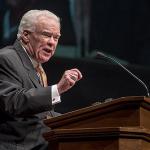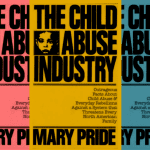In Masterpiece Cakeshop v. Colorado Civil Rights Commission, the U.S. Supreme Court found in favor of a Colorado baker who refused to sell a wedding cake to a gay couple. The Court’s decision hinged not on whether it was permissible for a business owner to discriminate against a couple based on their sexual orientation, but on whether the Colorado Civil Rights Commission displayed bias against religion in their handling of the case.
The primary proof shown that the Colorado Civil Rights Commission displayed bias, according to Justice Kennedy, who authored the decision, is this statement by a commissioner:
“Freedom of religion and religion has been used to justify all kinds of discrimination throughout history, whether it be slavery, whether it be the [H]olocaust, whether it be—I mean, we—we can list hundreds of situations where freedom of religion has been used to justify discrimination. And to me it is one of the most despicable pieces of rhetoric that people can use to—to use their religion to hurt others.”
Of this statement, Kennedy wrote that:
The commissioner even went so far as to compare Phillips’ invocation of his sincerely held religious beliefs to defenses of slavery and the Holocaust. This sentiment is inappropriate for a Commission charged with the solemn responsibility of fair and neutral enforcement of Colorado’s anti-discrimination law—a law that protects discrimination on the basis of religion as well as sexual orientation.
Do you know what I find most frustrating about this? An apparent dismissal of the role sincerely held religious beliefs played in defending slavery. The commissioner stated a simple fact—that religion has been and is used to justify discrimination. Slavery is one example of a case where religious beliefs undergirded discrimination. Segregation is another one. Stating this as fact is not inappropriate.
That the Colorado baker used his religious beliefs to justify discriminating against a gay couple is not in dispute. The question was whether he should be allowed to do so. That religious beliefs have been used to justify other forms of discrimination—and that courts have found in these cases that such action was not legitimate—is relevant.
As the Daily Kos reminds readers:
Rewind to 1964: Maurice Bessinger, Baptist head of the National Association for the Preservation of White People, refused to serve African Americans. When sued by an African-American woman under the Civil Rights Act, he claimed it violated his First Amendment rights because “his religious beliefs compel[led] him to oppose any integration of the races whatever.” Bessinger lost his case.
Bessinger and others like him genuinely believed that racial integration was against the Bible, and against the will of God. Whether they were right is irrelevant to the reality that this was their sincerely held religious belief.
Kennedy, it would seem, finds it offensive that religion was once used to justify slavery—presumably he would also find it offensive that religion was once used to justify segregation. I understand why Kennedy finds these things troubling. They are troubling. That he finds them offensive, however, does not change that they were so. People really did use sincerely held religious beliefs to justify slavery and segregation.
You don’t get to erase history just because you don’t like it.
I have a Patreon! Please support my writing!















